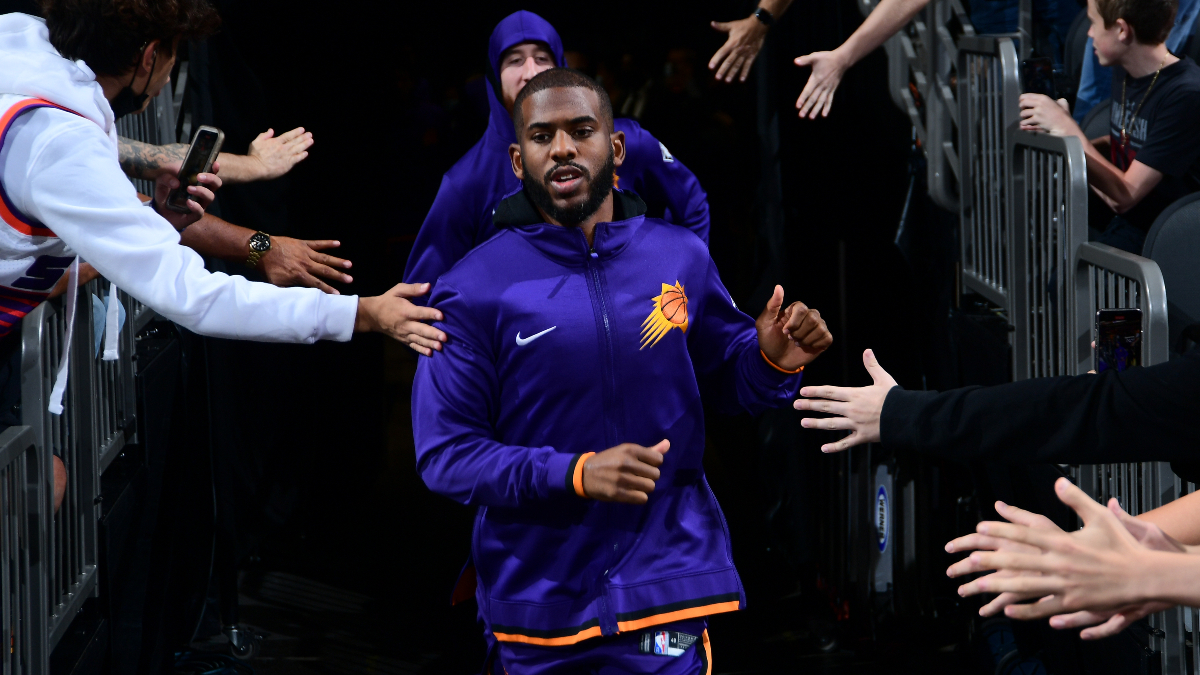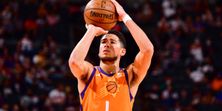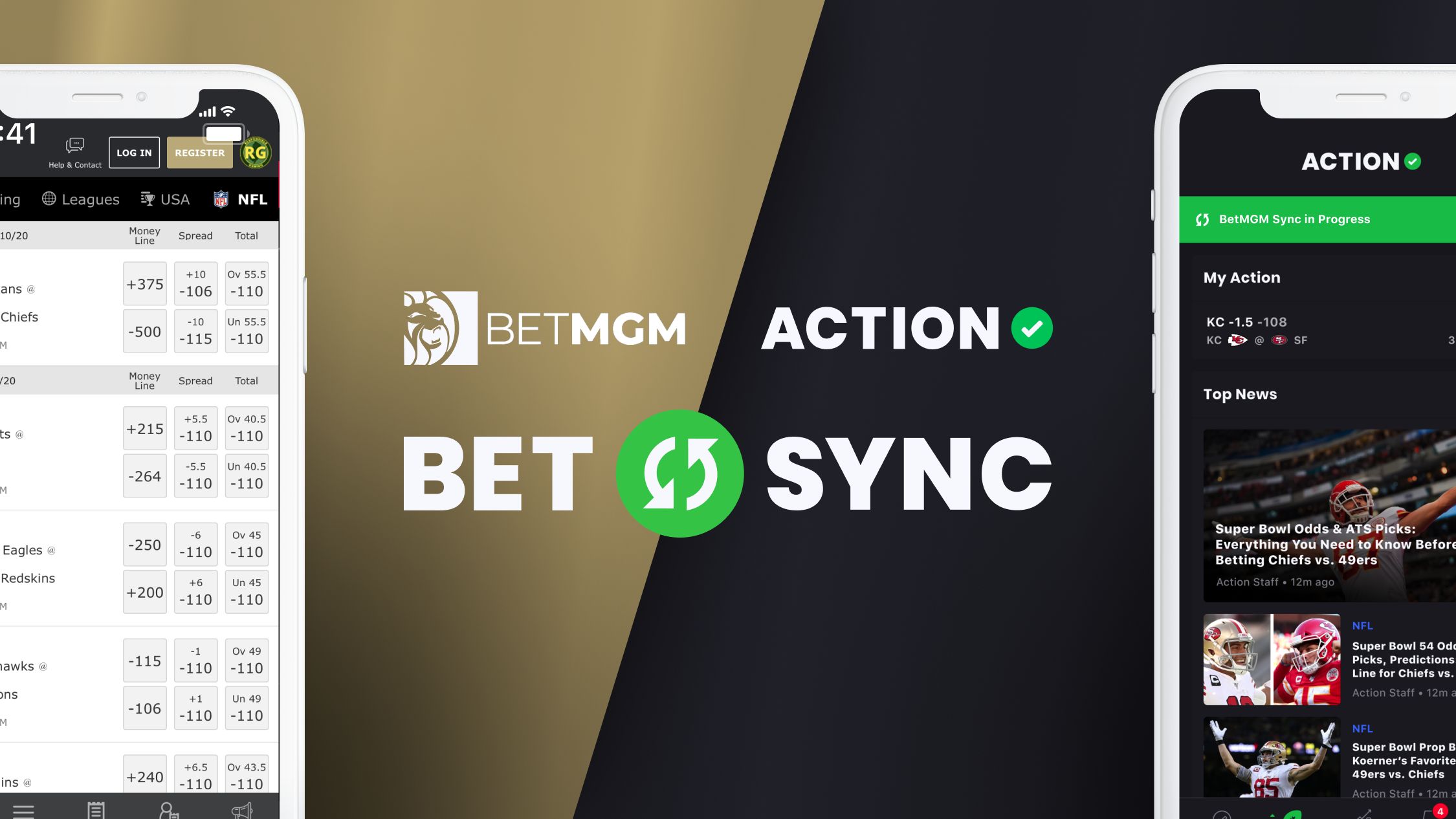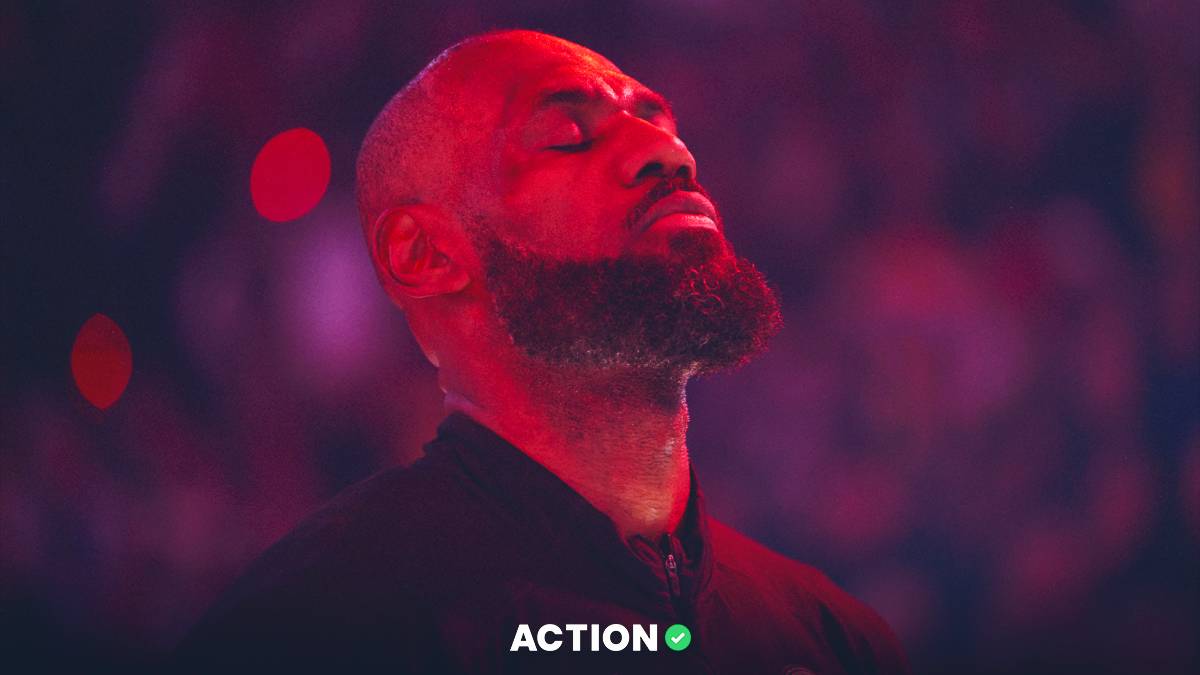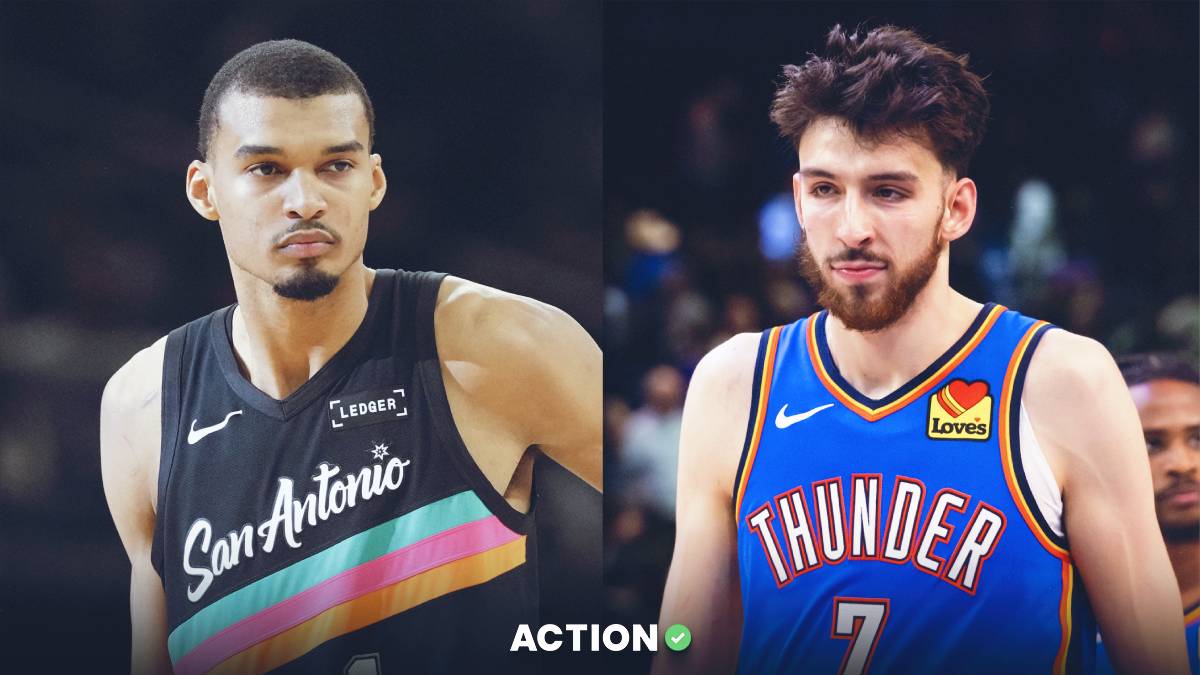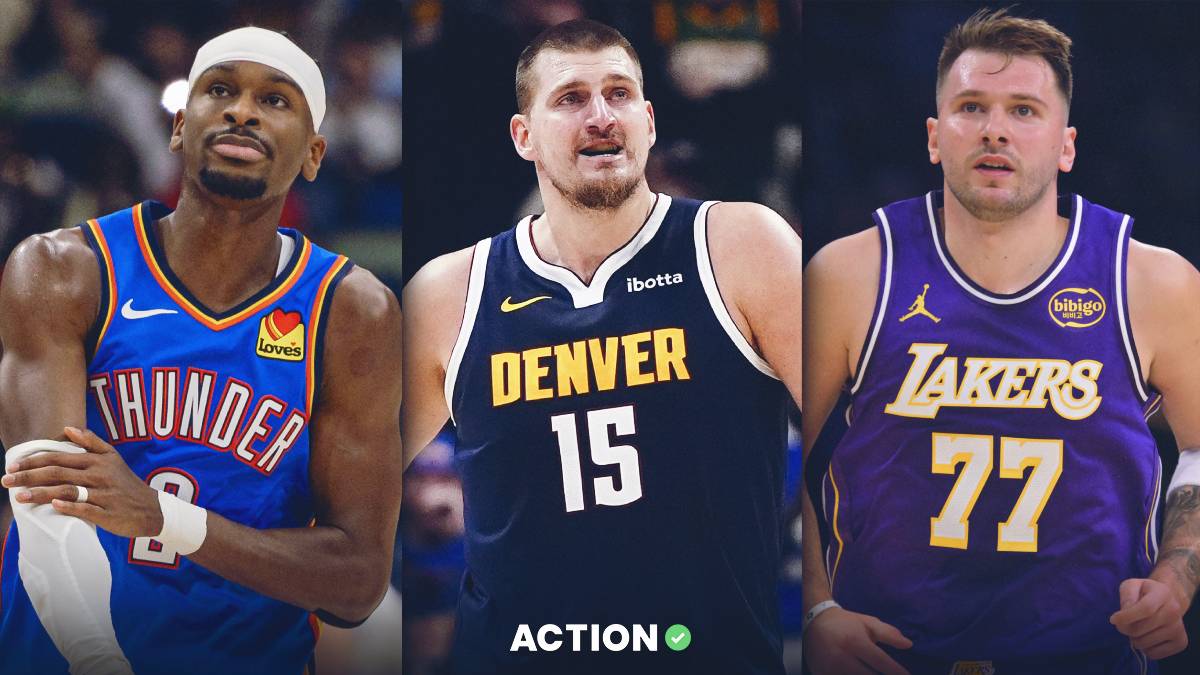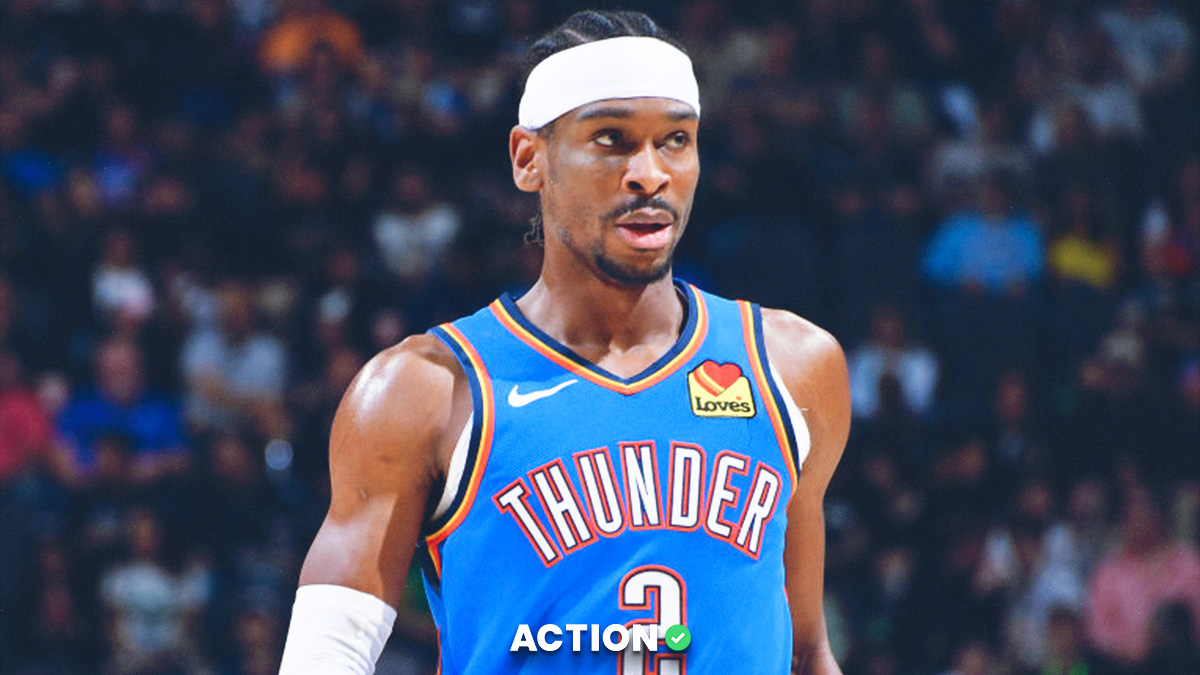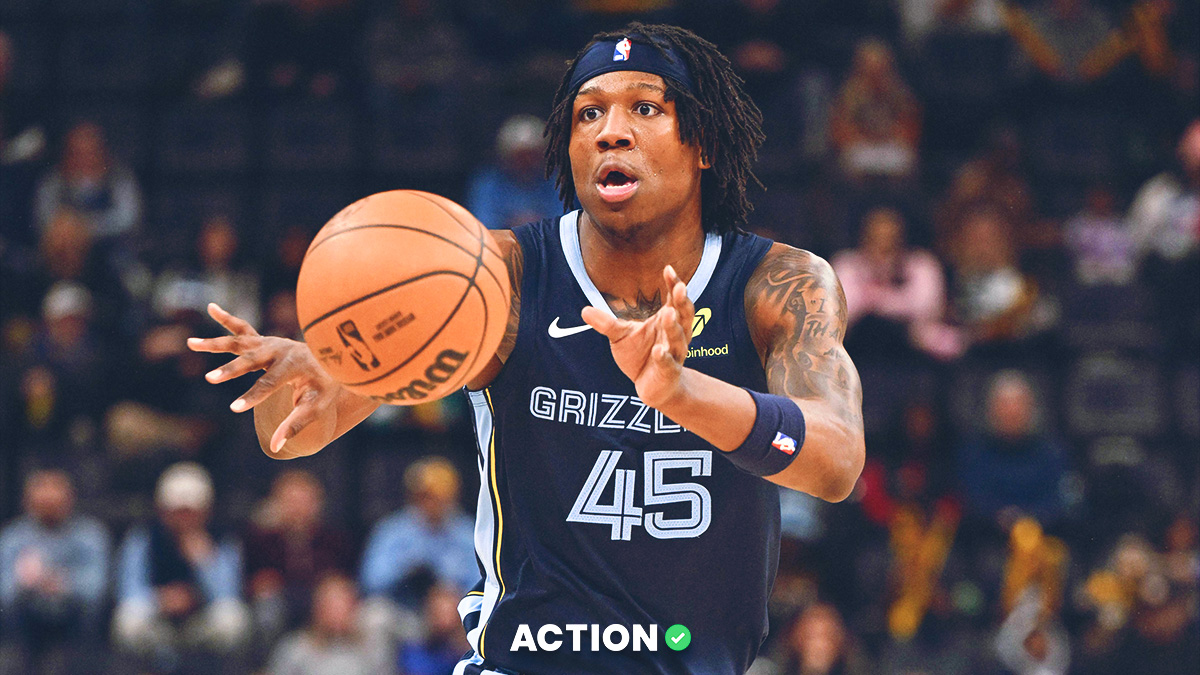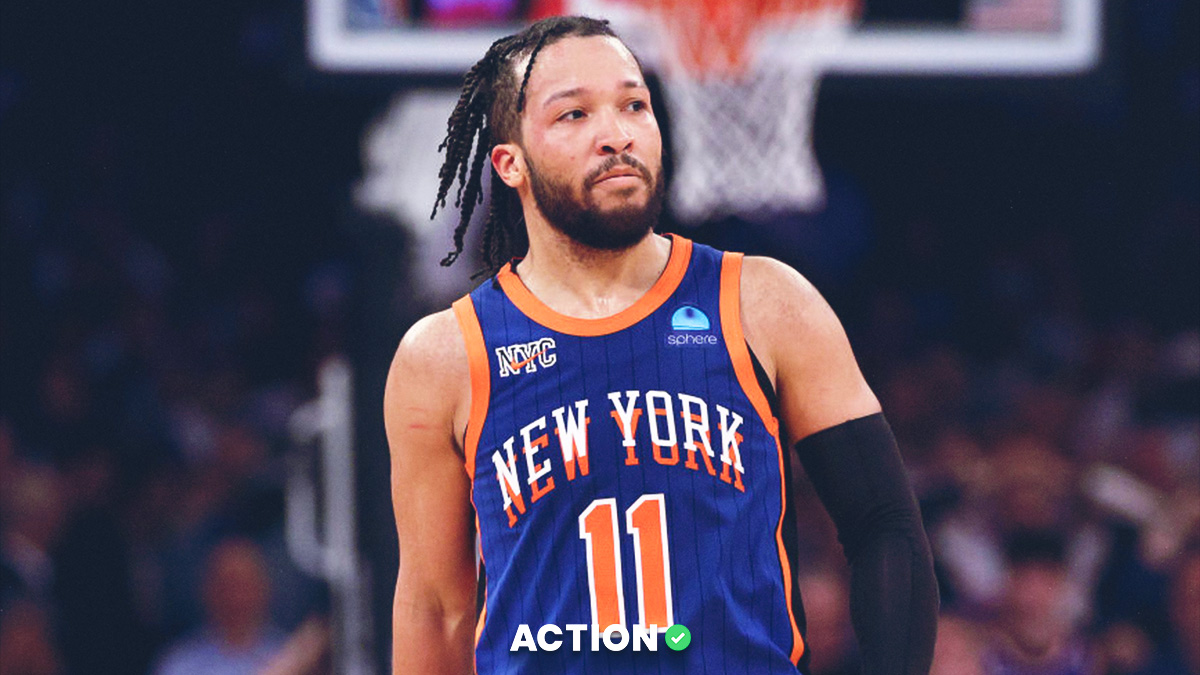Do you know what you don’t want to see when you bet the under on a team’s win total? That team winning 16 in a row in their first 20 games.
The Phoenix Suns have won 16 in a row and are on pace for 70 wins this season. They are somewhat under the radar, flying beneath the shadow of a giant “THE WARRIORS ARE BACK” banner, but the team that made a surprise run to the NBA Finals last season looks just as good.
Are they underrated? Overrated? Prime for regression? Built for the playoffs?
Here's an in-depth look at what's behind the win streak and what's lies ahead for the Suns.
No Outlier Red Flags
Phoenix, statistically, is legit.
When you look for signs a team might not be as good as its record, you’re looking for shooting variance offensively or defensively relative to personnel, schedule flukes, or extreme clutch performance.
A surface-level red flag is that Phoenix is 30th in strength of schedule per DunksAndThrees.com. Their schedule-adjusted net rating only comes out as fourth-best, with the 11th-ranked offense and third-ranked defense. They have the third-highest differential between expected win total and actual per CleaningTheGlass.com.
Based on point differential and strength of schedule, they are closer to 14-6 or 15-5. The problem, of course, is that even accounting for that they would still be on pace for 60-wins. So the knock is that they’ve beaten the pants off an easy schedule.
Pro-tip: If you want to build a great regular-season record, the best way to do it is by annihilating the bad teams, something that Phoenix actually struggled with last season despite finishing second in the league. This season they are 6-2 vs. teams under .500 with one of those losses to Denver who is below .500 due to a rash of injuries.
Another red flag? They have the second-worst expected eFG% based on where they shoot from via CleaningTheGlass.com, with the fourth-best actual eFG%. So clearly, they’re shooting way too well and that will drop, right?
Nah.
According to Second Spectrum, the Suns are actually seventh-best when you factor in how close a defender is, and that’s before you factor the quality of the shooter. So how to put all this together: the Suns get great shooters wide open for shots that are low percentage for the league on average but not for Phoenix.
As a league analytics consultant told me this week, “Evaluating shot quality stops and ends with shooter quality, that’s why you pay the guys you do, and the Suns pay the right guys.”
![]()
![]()
![]()
Regular Season Juggernaut
Very specifically, there are two groups of Suns shooters: Devin Booker and Chris Paul, and the Suns’ role players.
If you take out Booker, Paul, and Cameron Payne (who is predictably having a regression season shooting), and just look at their remaining rotation players, the Suns’ expected eFG% goes to 57%, which would be best in the league over Golden State by a full two percentage points.
JaVale McGee is having a stellar season. He’s shooting 72% at the rim, including 76% as the roll man in pick and roll. McGee helped hold the team up when Deandre Ayton was out.
McGee is getting 66% of his possessions off plays as the roll man in pick and roll, offensive rebounds, and cuts. He’s basically only taking high percentage shots. He’s 95th percentile, league-wide, on converting as the roll man, which means he basically only is a) getting the pass and b) shooting if he’s going to convert it.
Of the 18 players with 50 or more possessions as the roll man, McGee is second-most efficient league-wide behind John Collins. McGee's biggest asset, and something he had little of in his Shaqtin-a-fool youth, is patience.
He waits out the defense as they're forced to contend with Booker and Paul.
Mikal Bridges is 65th percentile on catch-and-shoot opportunities this year per Synergy Sports, and getting his shots from cuts, transition, and spot-ups. Again, there’s just nothing wasted with Bridges, the wing version of what McGee has given.
Ayton has been right there as a finisher. He’s posting up less than he did last season by a full possession, with more cuts and finishes as the screener.
Meanwhile, Paul and Booker remain elite at what they do, converting low percentage shots at a high rate. Booker started slow but has gained steam, while Paul is the fourth-most efficient pull-up shooter league-wide right now, with a 54.6% eFG on pull-up jumpers. His numbers on pull-ups in the midrange are right there with Kevin Durant.
So the model is sound offensively. Paul and Booker bend the defense with their scoring threats. If the defense commits to stopping them, they pass to teammates who aren’t trying to do too much. If they stay home, Booker and Paul dissect them.
Defensively, the Suns' MO is a simple foundational discipline. The Suns rank seventh in points in the paint while giving up the fourth-fewest points in the paint allowed per 100 possessions via NBA.com. They have given up the seventh-fewest points off turnovers per 100 possessions.
They don’t beat themselves, and they grind you down to the dirt. The Suns are allowing the second-lowest expected eFG% per Second Spectrum and the seventh-lowest actual allowed eFG%.
An Eastern Conference scout this week mentioned that “Phoenix doesn’t hit you with massive runs, they’re not explosive the way the Warriors are. But they are so good at controlling pace and tempo on both sides. I almost never see their starters get out of balance.”
Phoenix is playing less switch this season without the services of Dario Saric to go to five-out, switch-all. They’re averaging the fifth-most drop schemes per 100 possessions. That’s a conservative scheme and Phoenix’s strength last year was their ability to change up their approach. They’ve gone to a more steady and reliable approach for the regular season. When they do switch, they’re absolutely shutting down teams.
All of this adds up to a reliable and steady profile for the regular season, provided that their good fortune of health when it comes to Paul continues. The Suns have missed Ayton for several games and didn’t miss a beat. Phoenix is 14th in games lost to injury, and 11th in VORP lost to injury. They have had worse injury luck, so far, than last year, and are still succeeding.
Honestly, the Suns look more like the Jazz than the Jazz do this year. However, they don’t come with the same postseason concerns.
Playoff Problem Solvers
Phoenix had a fortunate run last year. We can be real about that. Anthony Davis got hurt. Jamal Murray (and Will Barton) (and PJ Dozier) were out. Kawhi Leonard was out. You don’t pick who you play, you play who’s in front of you, and the Suns beat those teams and earned their spot in the Finals.
Bear in mind that the Jazz had a limited Donovan Mitchell and Mike Conley, but ultimately did have them at the end and couldn’t beat that same Clippers team without Kawhi Leonard. The Blazers were full strength vs. the Nuggets without Murray and got wiped out in six games.
Here’s the hitch: the player with the best on-court net rating in their playoff run last season was … Saric. He is unlikely to play this season; his likely return date from surgery would be in the middle of the playoffs and teams rarely insert players fresh into the playoffs.
The Suns basically do not have a small ball option to turn to, they’ve played 11 minutes with Paul on-court without one of the centers. That’s a problem. The ability to throw different solutions to problems teams face is a crucial part of playoff success. Again, this was the difference between the Jazz and Suns last season.
That said, the Suns can switch with Ayton — he has only switched 18 times this season, but of those 18, eight have come in the fourth quarter. The Suns have that option in their bag if they need to go to it, and it is effective.
Bear in mind that switching everything is not a cure-all. If you face the Lakers, you want to play drop to get Russell Westbrook taking mid-range jumpers and containing Anthony Davis at the rim. You don’t want to give AD a mismatch.
If you play the Nuggets, you don’t want to switch and give Nikola Jokic a smaller defender in the post. But switching does provide an option vs. elite weapons off the dribble.
That's where Phoenix’s two games vs. the Warriors come in. For all of Phoenix’s success, the only team more successful in the West is the Warriors.
Houston showed that switching is the best tactic vs. the Warriors. It jumbles and crunches their off-ball movement for slips and Stephen Curry relocation 3s. It helps you stay in front of shooters at all times.
Likewise, the Warriors win by switching everything to limit opponents in the same way. The big way to punish their small-ball lineup is to be able to make All-Universe defensive player Draymond Green a liability. No one challenges Green in the post. Ayton’s ability to do so matters, but if this becomes a series, it will still come down to Booker and Paul having to hit contested shots vs. switch coverage.
The Suns can punish Green, but being able to and doing so are different worlds, and let’s be clear: contested mid-range shots are much tougher than open looks vs. drop. Paul notably shoots insanely well in these spots; he’s shooting 70% eFG vs switches this season. Booker struggles a lot more.
But either way, the Suns have answers for these problems.
“If I’m a team in the West,” an Eastern conference executive noted this week, “you had better have a plan for how to deal with Ayton and Paul and Booker because those guys can win a series and if they don’t, their defense will give them a chance. Tough as nails.”
The Suns are +500 to win the Western Conference at BetMGM. The Bucks and Nets still provide significant threats to the Suns’ makeup as evidenced by the Finals. But the Warriors may be the only team that really matches up with the Suns.
That’s not to say the other teams can’t beat them, and Paul’s durability, especially after last season’s good fortune, remains a concern. But you should not look at the Suns’ winning streak as just a feel-good story, but instead laying the foundation for homecourt in the first two rounds, and you should not look at their more consistent regular season success as an indicator they’re a regular-season team.
The Suns remain loaded with the right hardware, software, and firmware to make a repeat return to the Finals.


